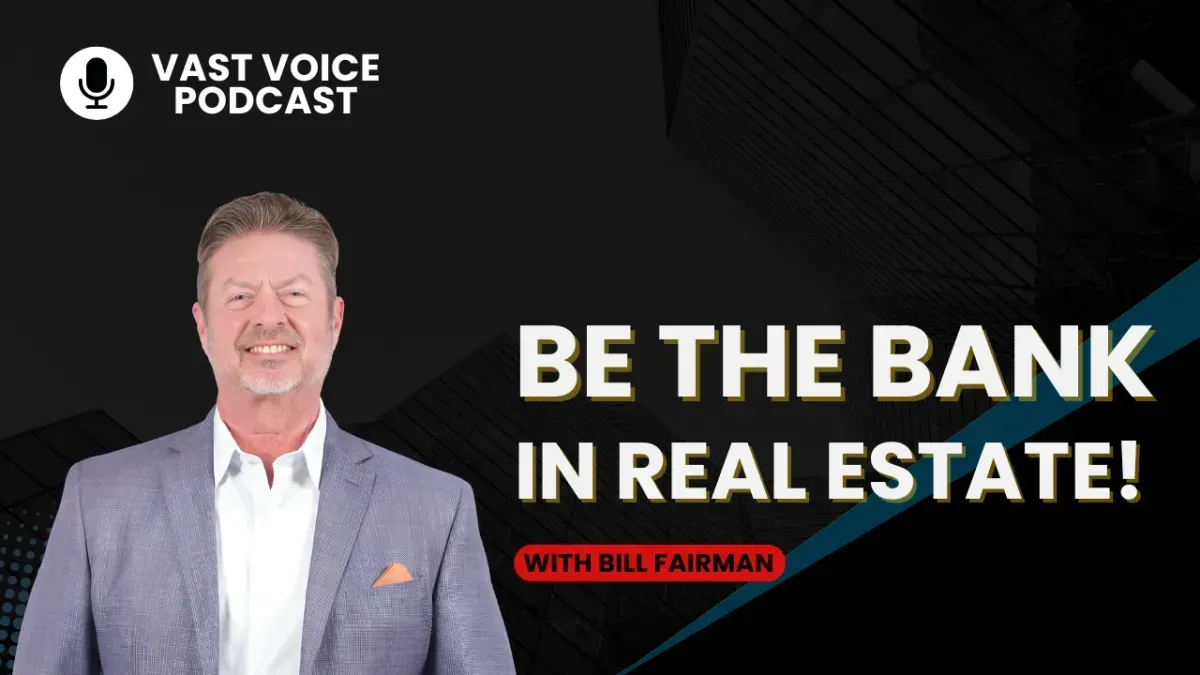
Be the Bank in Real Estate!
Real estate is a proven path to wealth—but what if you could flip the game completely and go from buyer to banker? Instead of hunting for deals, managing tenants, or flipping houses, imagine sitting at the top of the financial food chain: collecting payments, securing assets, and generating cash flow on autopilot.
That’s the power of “being the bank” in real estate investing—and it’s a strategy used quietly by the wealthy for decades.
Let’s pull back the curtain and show you how this strategy works, who it’s best for, and how you can use it to build tax-efficient, hands-free wealth.
What Does It Mean to “Be the Bank”?
Traditional real estate investing involves owning property, dealing with tenants, and managing repairs. But when you “be the bank,” you become the lender—not the landlord.
In this model, you provide financing (like a mortgage or deed of trust) to real estate buyers or investors. Instead of owning the property, you own the note and earn consistent income from interest payments—just like a bank would.
Benefits of This Approach:
Consistent Cash Flow through interest income
Reduced Liability compared to owning physical property
Collateralized Security: If the borrower defaults, you can take the asset
Passive Management: No tenants, no toilets, no turnover
How to Be the Bank: Top Strategies
There are multiple ways to position yourself as a lender in real estate, each with its own pros and strategic value. Here are some of the most effective:
1. Seller Financing
If you’re selling a property, you can offer the buyer financing instead of requiring them to go through a traditional bank. You set the terms—interest rate, payment schedule, and collateral—then collect monthly payments with interest.
2. Private Lending
You act as a private lender to other real estate investors, particularly those flipping homes or buying rentals. These investors often need fast, flexible capital and are willing to pay premium interest rates.
3. Mortgage Note Investing
Rather than originate a loan yourself, you can buy existing mortgage notes (performing or non-performing) at a discount, giving you control over the repayment stream—or the underlying property if payments aren’t made.
4. Use Qualified Funds
Advanced investors can even use retirement accounts—like self-directed IRAs or solo 401(k)s—to be the bank. This allows you to earn tax-deferred or tax-free interest from lending without ever touching the property yourself.
Why Entrepreneurs & High-Income Earners Should Pay Attention
Business owners and professionals often don’t have the time or desire to deal with the hassles of physical real estate. Being the bank provides:
Time leverage: No property management
Strategic income: Interest payments become predictable income streams
Tax advantages: Lend through retirement accounts or trusts to reduce or eliminate taxes
You can even blend real estate with your operating business. For example, your company might lease space from a property held in a trust or entity you finance. This opens the door to income shifting, wealth preservation, and layered tax strategy.
Risks to Watch For—and How to Mitigate Them
As with any investment, there are risks. Here’s what to look out for—and how to guard your position:
Default risk: Always require proper collateral and do full due diligence on borrowers.
Market shifts: Ensure your lending terms protect your downside (e.g., conservative loan-to-value ratios).
Liquidity: Mortgage notes are less liquid than stocks, so plan your cash flow needs accordingly.
Mitigation strategies include:
Using an attorney to structure note agreements
Requiring personal guarantees
Purchasing title insurance
Working with experienced brokers or platforms
Case Study: How a Business Owner Built a Bank of Their Own
Meet Jordan, a successful entrepreneur who didn’t want to manage rental properties but wanted the cash flow benefits of real estate. By setting up a self-directed retirement account, Jordan started lending to rehabbers in his area, earning 10–12% annual returns—tax-deferred.
Within five years, he had a fully passive portfolio of mortgage notes producing steady income with none of the daily stress of property management. Jordan’s wealth grew, but more importantly, it grew on his terms.
The Future of Real Estate Investing Is Financial Engineering
Today’s wealthiest investors aren’t just buying and flipping—they’re engineering cash flow and controlling risk. By “being the bank,” you’re no longer reacting to market trends. You’re setting terms, building financial moats, and creating a scalable, secure income system.
This is how legacy wealth is built. Quietly. Strategically. Efficiently.
Ready to Step Into the Banker’s Seat?
At VastSolutionsGroup.com, we help business owners and investors implement creative wealth-building strategies like this—combining tax design, entity planning, and alternative investing.
Whether you're curious about private lending, mortgage note acquisition, or structuring your deals to optimize tax benefits, we can help you build your own real estate bank—and enjoy the financial freedom that comes with it.
Let the banks chase loans. You write the terms.
Schedule Your Free Strategy Call Now!
